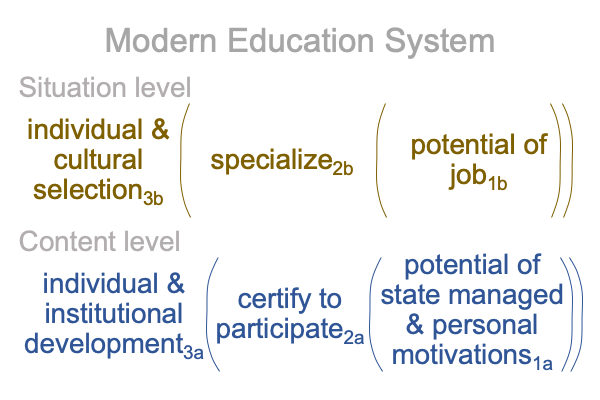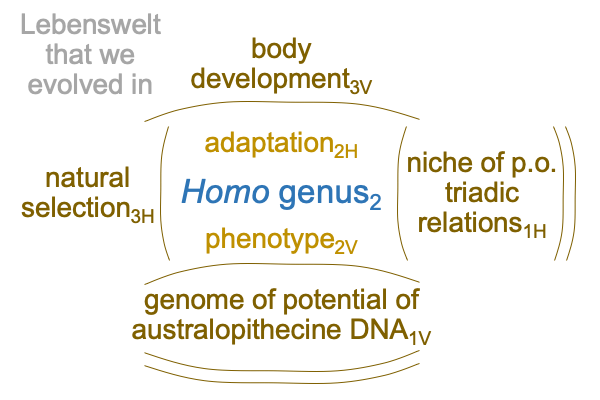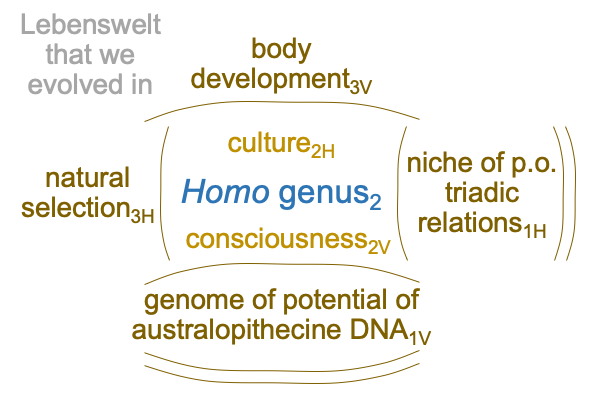0099 Surely, there is more to Heying and Weinstein’s guidance than meets the eye.
Higher education (post-2017) resolves the intersection, by removing all the mystery.
Perhaps, the mystery dissolves into ways that administrators and their political allies rig and game the system.
When an intersection breaks down (that is, when it loses its mystery), it resolves into a two-level interscope.
0100 The following two-level interscope resolves the contradictions of expertise2.

0101 The actuality of postmodern (and modern) specialization2b virtually emerges from and situates school certification2aas the gateway to participation in a state-regulated system. State-management1a channels personal motivations1a. So, jobs1b are never satisfying, because they satisfy regulatory requirements1a and simply assume that personal motivations1aapply.
0102 At this point, I look backwards to chapter three (Ancient Bodies, Modern World) and forwards into chapter twelve (Culture and Consciousness).
Consider the following figure.

Can I say that culture goes with adaptation2H and consciousness goes with phenotype2V?

If so, then the above figure re-articulates the mystery within chapter twelve. Chapter twelve juxtaposes culture2H and consciousness2V and plays the one off the other. But, in reality, these two actualities pertain to a single actuality2, the Homo genus.
0103 “Homo” is Latin for “man”. “Genus” is Latin for “general kind”.
Consider how modern wordplay has twisted the meaning, presence and message of these terms.
Then consider the value of this book, as well as Weinstein’s darkhorse podcast.
0104 Heather Heying and Bret Weinstein are professors, once adapted to the niche of higher education (pre-2017) and now adapting to the niche of podcasting (post-2017).
Currently, higher education eliminates the distinction between disciplinary mastery and educational mission. Higher education (post-2017) resolves the mystery of team activities into a rigged system of regulated specializations situating school systems that game certifications.
The niche of podcasting keys into the evolution of team activities. In order to join the team, one patronizes the podcast. The next step, a crucial endeavor, concerns certification. How does one certify what another person has mastered while listening to and supporting podcasts?
This is the question that I pose at the end of this examination of Heying and Weinstein’s book.
Surely, we need guidance in answering the challenge.
